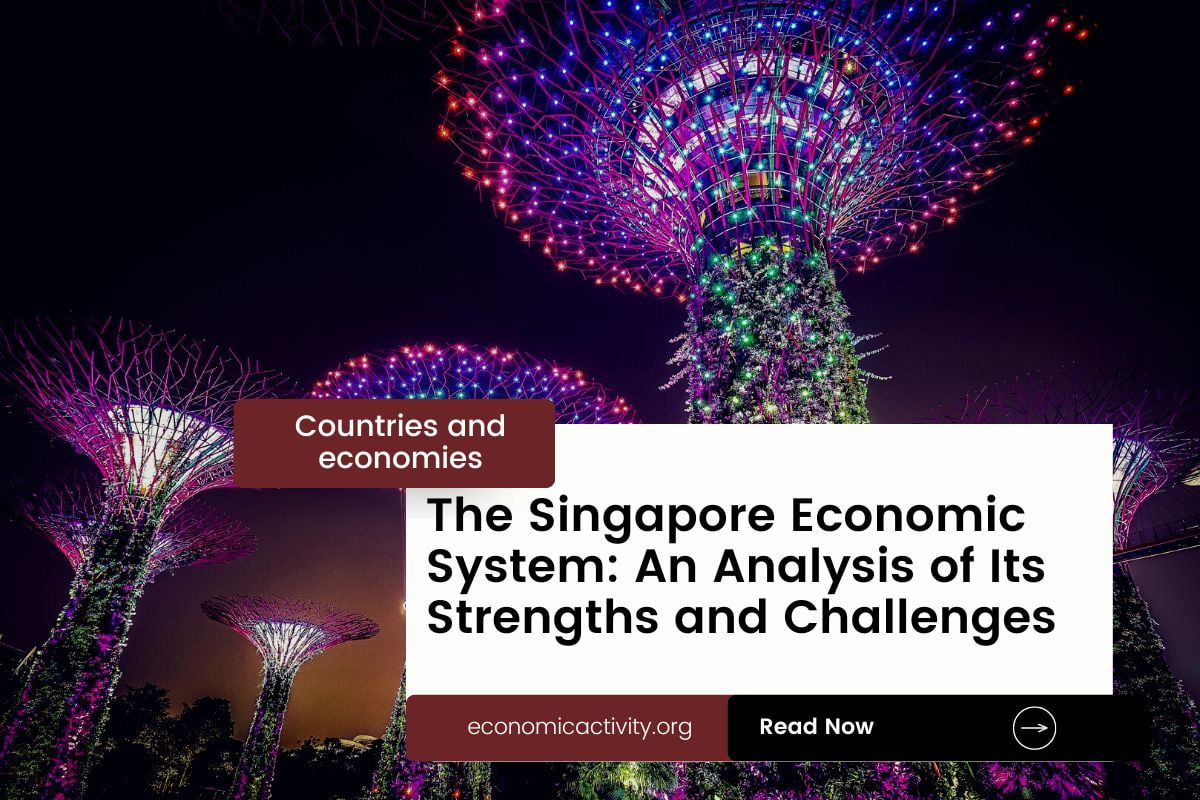What is the economic system of Singapore? The economy of Singapore is based on a mixed economy, that resembles a market economy. The country’s economic system combines elements of a market economy and a planned economy, individuals are free to work, produce, consume, and invest in any way they please.
Singapore boasts a highly developed free-market economy. Key sectors include manufacturing, particularly electronics and biotechnology, and a highly efficient and growing services sector. Known as a financial hub, it has strong banking, insurance, and asset management industries.
In Singapore, the economy is composed of a private sector, consisting of individuals and businesses that make autonomous decisions based on self-interest, and a public sector, where the state determines the production and distribution of certain goods and services. No country is purely capitalist or purely communist.
What do the freedom indexes tell about the economic system of Singapore?
Now, to determine if a country is mostly a market economy or a planned economy, it is useful to examine some economic indexes. For instance, according to the 2022 Index of Economic Freedom, which measures the ability of every human to control his own labor and property, Singapore is ranked 1st globally and 1st in Asia-Pacific indicating that the country has the freest economy in the world. It could be said it has the strongest market economy in the world.
In a similar way, the 2022 Freedom House index evaluates the state of political rights and civil liberties globally. Generally, market economies tend to align more with democracy and freedom, while command economies tend to be characterized by greater state control and fewer democratic and civil liberty protections. Singapore gets a score of 47/100, which qualifies it as Partly Free.
Singapore has a government that does not control what people do, and people can make their own economic decisions. Still, it is only considered an electoral democracy, lacking full liberal democratic protections.
The Link Between Public Sector Employment and the Economic System of Singapore
An indicator of the extent to which the State is involved in the economy is the number of public sector employees. In Singapore, according to ILOSTAT, the number of public sector employees as a percentage of the total workforce is 2.6% (2021).In the country, the public sector tends to be small and efficient. As a result, the number of public sector employees as a percentage of the total workforce is low compared to other countries.
What do the biggest companies in Singapore say about the country’s economic system?
The biggest company in Singapore should also be looked at, as well as whether it is a state-owned or private company. In this case, DBS is a leading financial services group in Singapore, offering consumer banking, wealth management, and investment services.
The company is a public company listed on the Singapore Exchange, meaning its shares are owned by numerous individual and institutional investors. However, the largest shareholder is the investment arm of the Singapore government.
This shows how the biggest companies are private but there is a participation of the state.
More: Top 10 Biggest companies by revenue in Singapore
The historical factors that have influenced the economic system of Singapore
The mixed economy system of Singapore was caused by a combination of factors, including the country’s colonial history, its strategic location, its open trade policies, and its strong focus on education and technology.
Singapore’s colonial history gave it access to a large pool of skilled labor, while its strategic location allowed it to become a major trading hub. Its development as a market economy allowed it to attract foreign investment, while its focus on education and technology-enabled it to become a leader in the global economy.




Leave a Reply